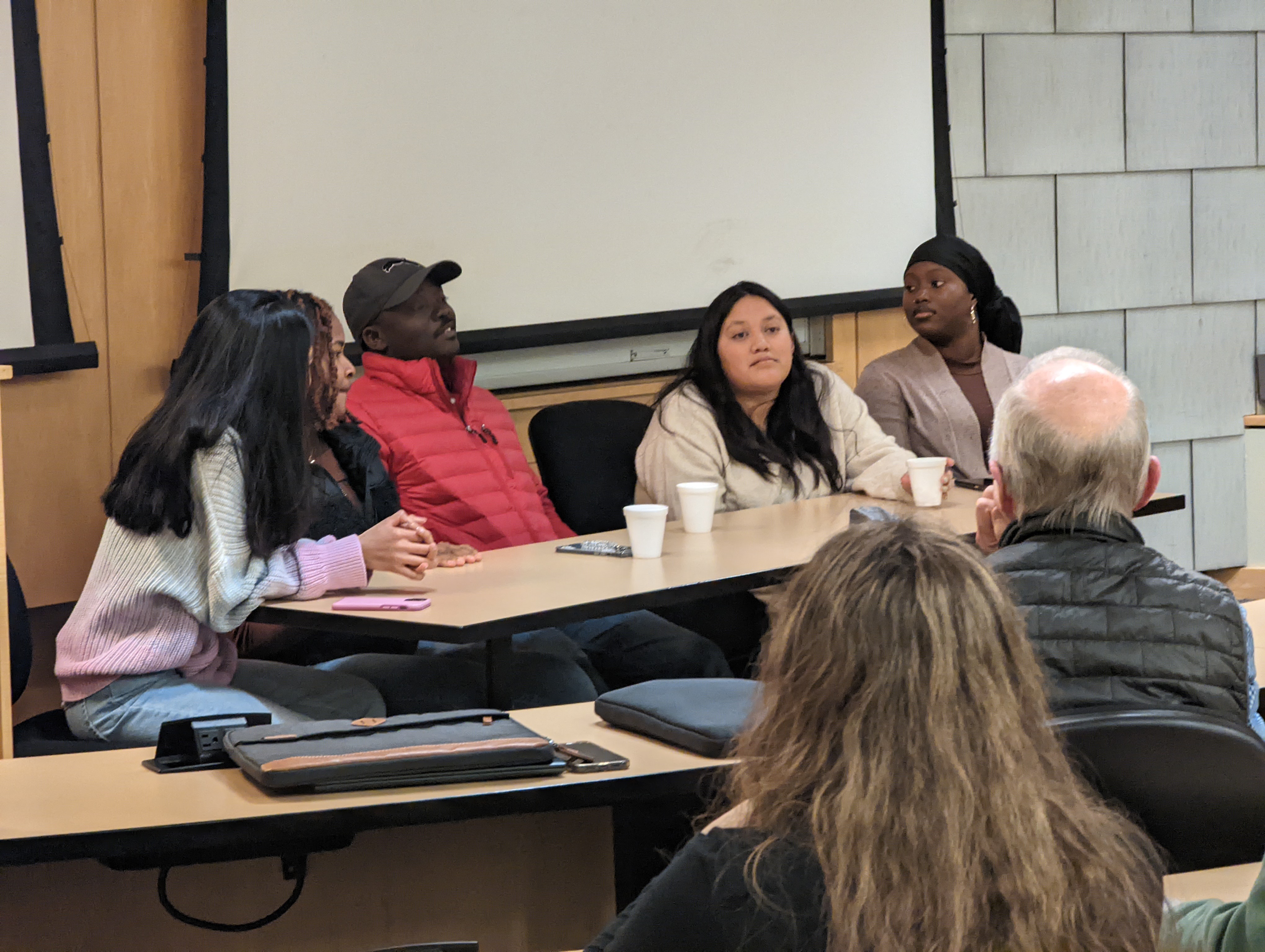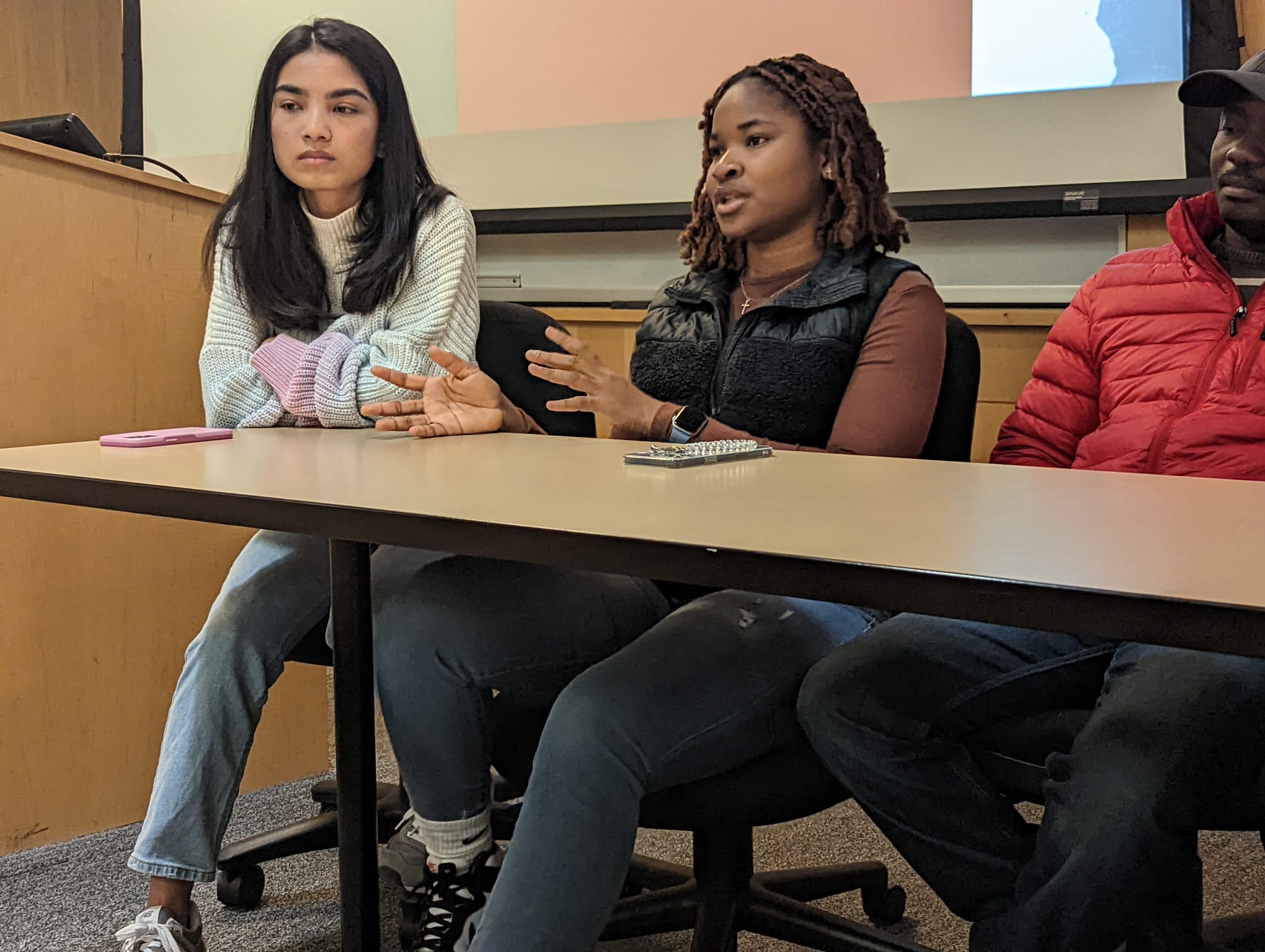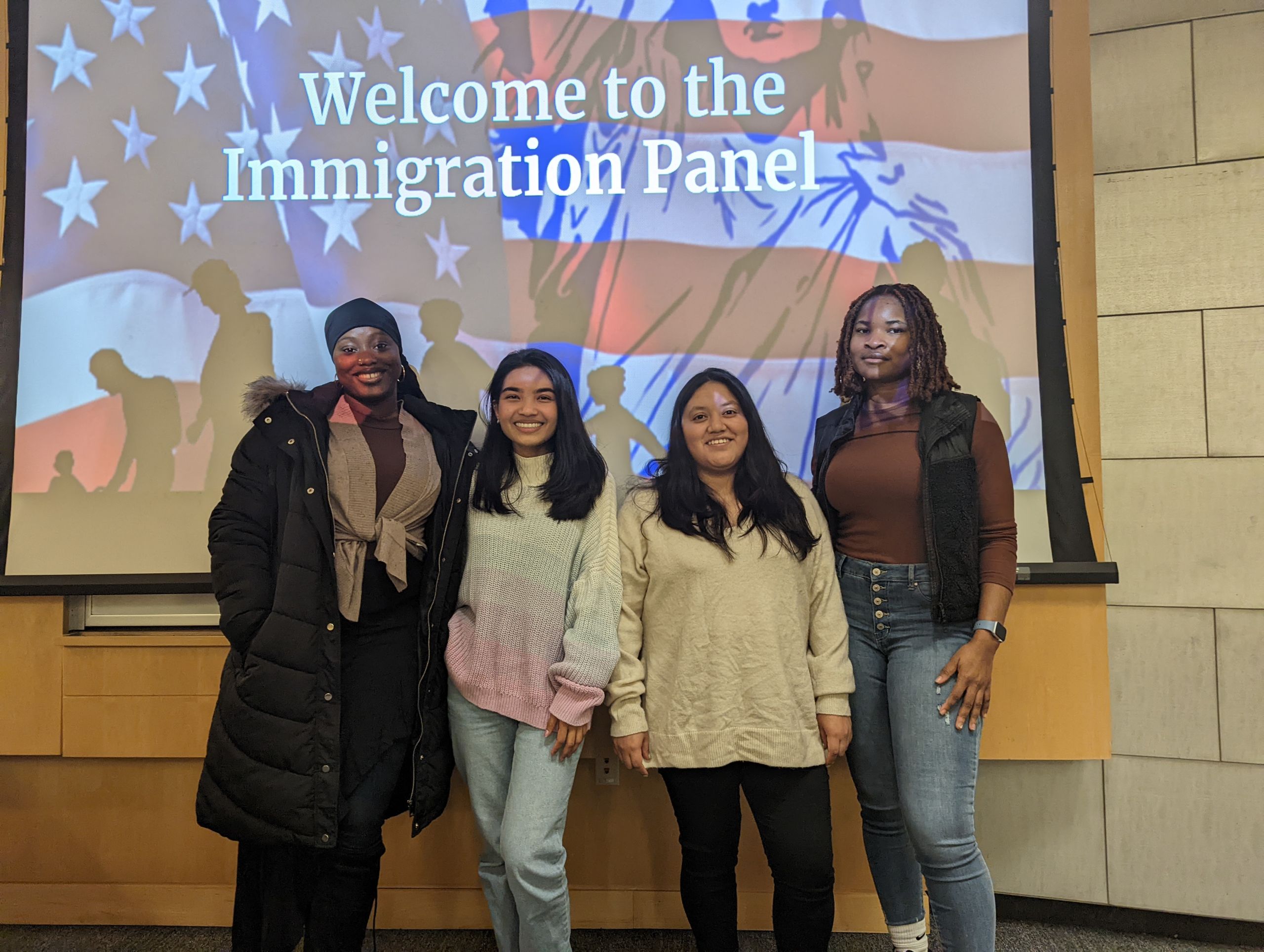From war to a new job opportunity, every immigrant has a story. On Feb. 9, Cabrini students came to hear these stories in the Iadarola Lecture Hall. The Cabrini Immigration panel was hosted by Catholic Relief Services, and included five immigrant students at Cabrini.
Their stories
“For every immigrant, our stories make us unique and the journey is different for everyone,” said Fanta Bility, senior business management major.
Puja Neopaney, an MBA graduate student, and president of Cabrini CRS, immigrated from Nepal. Neopaney was born in a refugee camp. Her parents were born in Bhutan, but as Bhutanese Nepalese they always spoke Nepali and followed their own culture and religion. The Bhutanese government believed these Nepali-speaking people would take over Bhutan, and began the ethnic cleansing of Bhutanese Nepalese in the late 1980s.
Neopaney’s family fled their home and had to cut down trees in the wilderness for shelter. Later, her family lived in a refugee camp supported by NGOs. UNICEF also began helping the Bhutanese Nepalese children get an education, and they received food, clothing, and building supplies. Neopaney’s family came to the United States in 2011 through the U.N.’s International Organization for Migration.
The Neopaney’s came here with nothing, and could not speak English. It was hard for Neopaney’s family in the beginning, as her mother raised four children on her own, and has spent the last 10 years working for Tyson Foods, inspecting chicken. Neopaney is pursuing her MBA at Cabrini.
Another student on the panel, senior political science major, Noeli Hossou shared her journey to America. Hossou came from Benin in West Africa to America when she was 16 years old.
Hossou’s aunt made the decision to relocate her and her cousin to America. “They told us when we get here, we will go to school,” said Hossou. In the first week, she started working seven days a week. Hossou and other children who also came from West Africa were forced to work without pay, and didn’t have the freedom to go anywhere.

Approximately 14,500 to 17,500 people are reportedly trafficked into the United States each year, according to the U.S. Department of State. Eventually, one of the kids decided to leak the information to the police. Hossou and her cousin were relocated from Chicago to Pennsylvania, and housed with their first foster parents. Finally, they could attend school.
When Hossou was 18 years her foster parents asked them to leave. Hossou and her cousin got their first apartment together. During high school, Hossou worked at the Montgomery mall and as a cleaner at Courtyard by Marriott Hotel while also getting good grades. She applied to many colleges and chose Cabrini.
Another panelist was Johnson Jemahwuo, senior health science major from Liberia. He was a child during the Liberian civil war and became a refugee twice. His family fled to Ghana’s Buduburam settlement during his second stint as a refugee. They had to travel a very long distance and had no place to sleep.
“We were in the open field for almost three months; we never had food to eat; we had to live on wild food, fruit, and other things,” He recalled.
“We were refugees, but before the food can reach us, half of it has already gone to the citizens themselves because the citizens have to spearhead everything,” Jemahwuo said. During a cholera outbreak, Jemahwuo lost two of his sibling. Jemahwuo and his family also dealt with xenophobia and were treated like rebels instead of refugees.
Jemahwuo and his mother almost lost their lives many times, and suffered many violent attacks. Jemahwuo’s brother ran away to America, and by coincidence, a man who came from America knew Jemahwuo’s brother and told his family the brother was looking for them. The man put their names on the U.N.’s resettlement program, and they were able to immigrate.
Gabriela Chauca, senior business management Spanish major, from Ecuador, was another panelist. She was 10 years old when she came to America. At that time didn’t understand why her family left and loved her country and friends. Her mother was a single parent of three. Chauca’s grandmother immigrated to America before she was born and supported the family financially.
Chauca’s mother didn’t have a job, so she partnered with friends to farm and sell the food they grew. But the city was often violent, and one day someone stole all the food she had for sale. That, coupled with the worsening effects of climate change made Chauca’s mother decide to immigrate. Due to climate change, 21.5 million individuals have been forced to migrate.
Chauca’s grandmother filed for the family’s immigration, which made the journey a little easier. But the permanent residency procedure can take from six to 33 months. Chauca’s mother was rejected twice before her family was finally accepted, and came to America in April 2011.
The final student panelist was Fanta Bility, a Guinean immigrant. Bility’s mother lived in America when Fanta was a child, and worked three jobs to send money to feed Bility and her siblings. She didn’t see her mother for 11 years until 2016, when Bility came to America with her two brothers.
“Just the fact that we were all there together, I still did not understand the severity of our situation. I thought it was normal,” said Bility.
When Bility started high school in October of that year, she had to adjust to many things, like the language barrier, and became very reserved. “I kept to myself; I used not to talk to anyone,” said Bility. “How can I be a part of this new environment.” In addition to the language barrier, she had trouble finding a community at school. With the help of class group activities, she connected with her peers, met other immigrants, and learned how diverse they are.
The purpose of the panel

The purpose of the panel is to “raise awareness on campus about how many people in our community here who have come from other countries and have amazing stories about how they ended up coming here,” Dr. Raymond Ward, director of the Wolfington Center, said.
Ward said this is the second year in a row for the Immigration panel. Last year’s panel focused on the different immigration statuses of people on campus. This year’s panel focused on immigrants’ experiences that led them to immigrate and if they feel welcomed in the U.S. One thing that Ward hopes that students take away from the panel is “they understood that just because they see somebody on campus, they don’t know their story. And that there are some people that are here that have really lived through a lot and have a lot to share if people would just happen to ask.”





